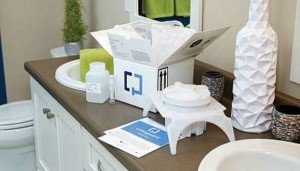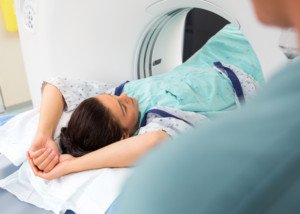
If you’re having only one bowel movement a week, this can mean an obstruction, says gastroenterologist Sander R. Binderow, MD.
“It is important to also ask patients if they are passing gas if they have not had a bowel movement for a week,” explains Dr. Binderow, who’s with Atlanta Colon & Rectal Surgery.
“If the person has not passed gas nor had a bowel movement, then there could be an obstruction, and they should seek immediate medical attention if they have not already.”
Can one bowel movement a week ever be normal?
Dr. Binderow says, “If someone is not having bowel movements, but they’re passing gas, have no pain, are not nauseous – then they are probably constipated.
“Although they still may need medical attention, it is not immediate. Laxatives may help.”
This isn’t to say that being this constipated is normal.
But at least the presence of passing gas, and absence of other symptoms, point away from an obstruction as being the most likely cause.
More on Bowel Obstruction As Cause of One Bowel Movement a Week
“A patient with the above symptoms and no BM, especially if onset is sudden and acute, may have a bowel obstruction,” continues Dr. Binderow.
“They need to seek medical care immediately. Laxatives may further harm this situation.”
So will trying to “push” the constipation out by loading up on heavy, rich foods. This won’t push it out; it will only add to it.
Can a change in diet or a particular kind of diet cause a person to poop only once a week?
“Diet won’t affect this at all,” says Dr. Binderow.
And here is some striking news: Suppose you take laxatives and these produce a bowel movement—finally.
Do not make the mistake of thinking that this is a sign that “it can’t be cancer.”
Here is what Dr. Binderow says: “Laxatives may still work in a partially obstructing colon tumor. It does not point away from a tumor.”
If your constipation continues — even if you don’t have pain, nausea or even if you’re regularly passing gas, you should opt for a non-invasive, cancer colon screening exam such as Cologuard.

This can be done at your home and it “only requires following up with a colonoscopy if you receive positive results,” says Dr. Binderow.
Cologuard uses the latest in DNA technology to identify abnormal cells in your stools.
 Dr. Binderow performs minimally invasive, robotic and laparoscopic surgery for Crohn’s disease, ulcerative colitis, colon cancer and other colorectal conditions. Adept at routine procedures, he also sees patients with complex, atypical maladies.
Dr. Binderow performs minimally invasive, robotic and laparoscopic surgery for Crohn’s disease, ulcerative colitis, colon cancer and other colorectal conditions. Adept at routine procedures, he also sees patients with complex, atypical maladies.
 Lorra Garrick has been covering medical, fitness and cybersecurity topics for many years, having written thousands of articles for print magazines and websites, including as a ghostwriter. She’s also a former ACE-certified personal trainer.
Lorra Garrick has been covering medical, fitness and cybersecurity topics for many years, having written thousands of articles for print magazines and websites, including as a ghostwriter. She’s also a former ACE-certified personal trainer.
.









































